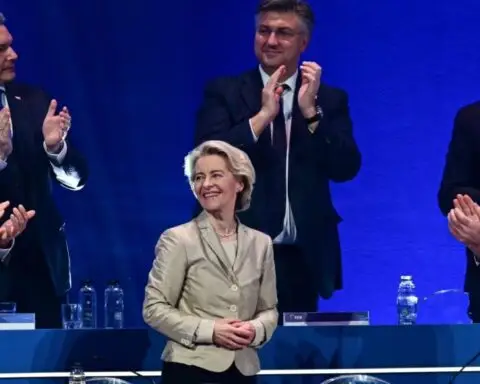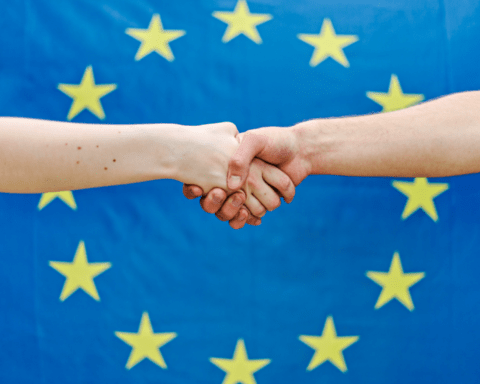How an investment in modern equipment led to significant savings
Thirty years ago, the Špijunović family started a small home business. Today, the company’s facilities span 4,000 m2. Bel-Plast, in the Serbian city of Uzice, specialises in producing foils and films (such as stretch hooding, shrink wrap and laminating film) for the food, beverage and construction industries. Over the past three decades, it has established itself as a leader in the product packaging sector.
Sanja Markovic, a daughter of the founder, runs the family business with her sister and father. She tells us about her father’s 30-year-old business vision, which the company follows to this day.
“My father started the company in the 1990s, when product packaging and design in Serbia were not nearly as popular as they are today,” Markovic says. “Still, he knew that good packaging was one of the most important features of a successful product and that it had great influence on business and sales growth.”
“Over the years, we have continued to invest in new equipment, technology and services with a view to improving our business,” she adds. “We have always striven for innovation, to offer our clients something new, because their perfect product needs perfect packaging, such as ours!”
Today, Bel-Plast employs 39 people and its packaging services are used by a vast array of companies in Serbia, including blue-chip corporations such as Coca-Cola and Holcim.
Modern technology that generates savings
With an eye on the future and keen to get on board with green trends, especially in the European Union (EU) markets, Markovic started to think more about how to improve the energy efficiency of Bel-Plast’s production processes and how to increase the use of modern materials that would allow users to easily recycle their packaging with no harmful, polluting effects on the environment.
“We were interested in purchasing a modern production line by a German manufacturer ‒ something completely new for the Serbian market – which would allow us to make significant resource savings during the production process, but at the same time increase our output capacity and make a better product,” she says. “This was a significant investment, the biggest in our company’s 30-year history, but we expected great results and we started planning how we could achieve it with EBRD support.”
The EBRD and EU support private small and medium enterprises (SMEs) in making investments that help them become more competitive, both in local and foreign markets.
To export to the EU, Serbian SMEs need to meet EU regulations, for example, in the areas of environmental protection, occupational health and safety, and product quality and safety – all of which require additional investment. The EBRD and EU-supported programme offers SMEs access to credit lines through local partner financial institutions, precisely for this kind of investment.
On successful completion of the investment, SMEs are eligible for a cashback grant of 15 per cent, which significantly reduces the overall cost of their investment. In addition, SMEs can obtain EBRD advisory support, which, in Serbia, is also funded by the EU.
Greening the business
“We decided to take out a loan and invest in the new production line,” Markovic says. “The results have been very satisfactory: our production capacity has doubled and the modern technology has allowed us to create a full range of new products to meet the needs of even the most demanding customers.”
The investment has also allowed Bel-Plast to make significant cost savings.
“The new production line not only allows us to produce better and more, but to use fewer production resources, which has helped us to achieve significant savings,” Markovic explains. “We can now produce more in less time, using only 100 per cent virgin materials, with improved energy efficiency.”
EBRD and EU support
Improving access to finance for SMEs is key to economic growth, especially in Serbia where SMEs account for around 65 per cent of the country’s employment.
“In addition to supporting entrepreneurs with EBRD and EIB, EU-funded projects in Serbia promote job creation, economic and technological development and legislative framework improvement, all of which contribute to an improved economic landscape. The EU supports the Serbian economy by strengthening its private sector and SMEs, which are essential for its economic growth. Through different mechanisms, the EU offers direct support for business development and supports business incubators. Furthermore, by promoting the cooperation between science and economy, the EU encourages companies and science and research organisations to create innovative products with commercial potential”, said the Head of the EU Delegation to Serbia, Ambassador Sem Fabrizi.
“In 2020 alone, the EBRD provided over €136 million financing for SMEs in Serbia. Bel-Plast example shows how access to well-structured financial and advisory support can encourage local firms to invest in boosting their competitiveness. It pays off in the long run with higher sales with better quality products and higher production capacities, among other benefits. Encouraged by many great companies and their success stories to which we contributed through the €40 million programme to date, we are united with the EU in our ambition to continue providing support to the local companies in Serbia,” said Zsuzsanna Hargitai, EBRD Director, Western Balkans.






